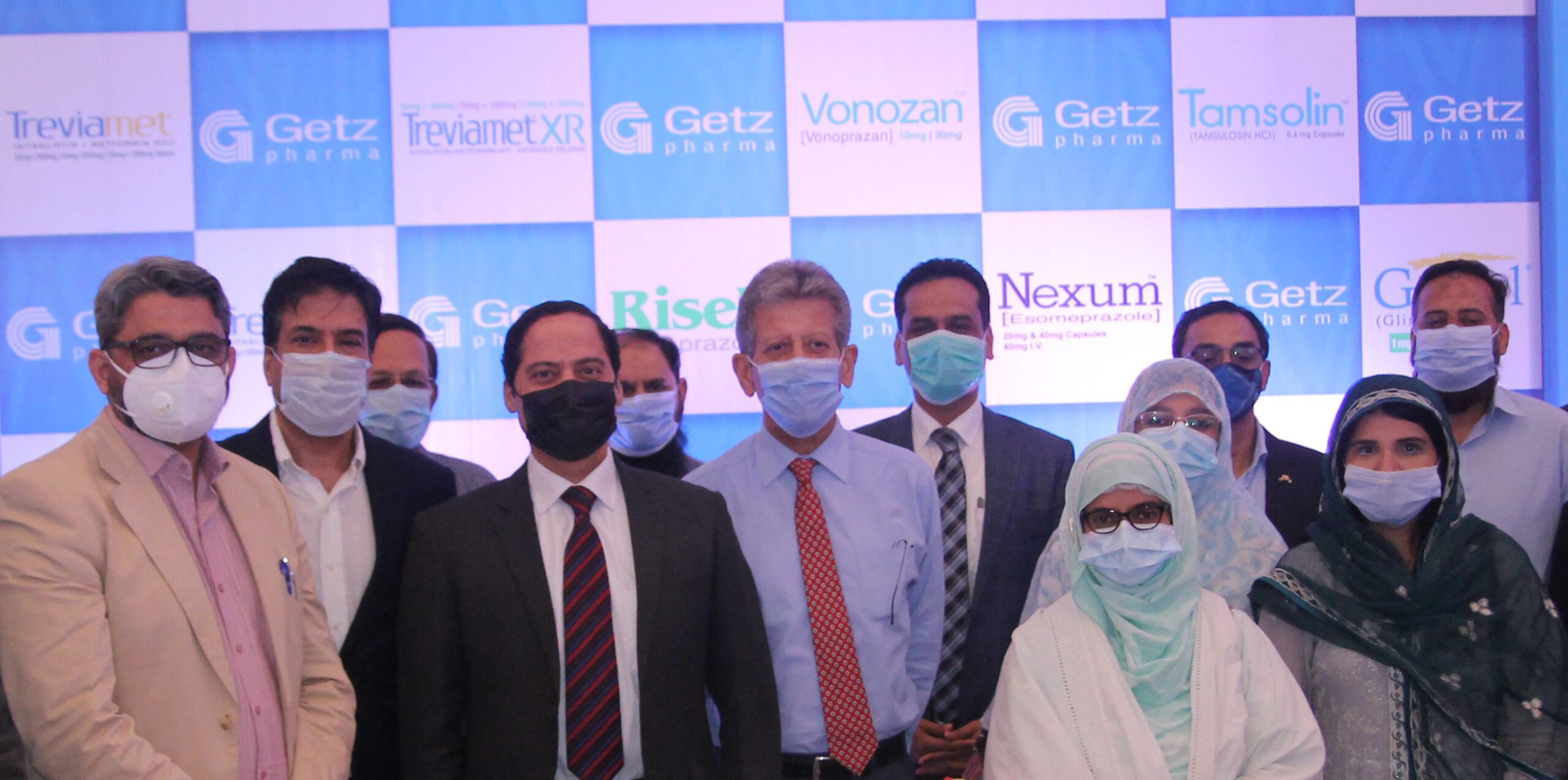
As a research-driven pharmaceutical company, Getz Pharma takes an active role in supporting advanced scientific studies that can help patients and healthcare professionals in dealing with life-threatening diseases. This time, Getz Pharma is proud to launch Pakistan’s first Metabesity Guideline in collaboration with leading medical societies of Pakistan.

On June 23rd, 2021, the Institute of Business Administration (IBA) held a discussion under their ‘CEO Forum’- a platform where different business leaders gather to present their views on current and impending topics. This time, the topic under discussion was: “After COVID: What have we learnt?”. The panelists at this session included Khalid Mahmood, Managing Director and CEO, Getz Pharma, Dinshaw Avari, Executive Director of Avari Hotels, Huma Adnan, Creative Director of FNKAsia and Craft Stories, Kashan Hasan, CEO Reckitt Pakistan and Azhar Abbas, Managing Director of Geo News. The session was moderated by Akbar Zaidi, Executive Director, IBA Karachi.

Getz Pharma announced that its new manufacturing facility, named Astola, has been awarded the First LEED Platinum Certification for a pharmaceutical plant in South Asia, by the U.S. Green Building Council.

Getz Pharma and Tabba Heart Institute, in order to address the issue of the rising health burden of ASCVD in Pakistan, are entering into a Joint Venture Agreement for the largest, first-of-its-kind, longitudinal cohort study on Atherosclerotic Risk Assessment in Pakistani Population. This study aims to recruit healthy volunteers aged 30 years or older, from selected urban and rural areas of Pakistan, who are asymptomatic and have no cardiovascular disease. This would allow for assessing the participants’ risk factor profiles and follow them up for at least 10 years to document the incidence of ASCVD.
You are about to be redirected to an online retailer’s website. Getz Pharma is not liable for any data exchange on the new website
You will be redirected in 3secs
Disclaimer: "This message (including attachment) is intended solely for the use of the individual or entity whom it is addressed and may contain information that is confidential or privileged. If you are not the intended recipient of this message, you are hereby notified that any use, dissemination, distribution or reproduction of this message is prohibited and that, you must not take any action in reliance on it. E-mail transmission cannot be guaranteed to be secure or error-free as information could be intercepted, corrupted, lost, destroyed, arrived incomplete or contain viruses; therefore Getz Pharma (Private) Limited cannot accept legal responsibility for the contents of this message. If you have received this communication in error, please notify the sender or Getz Pharma (Private) Limited at [email protected] immediately and destroy the original message."
Close